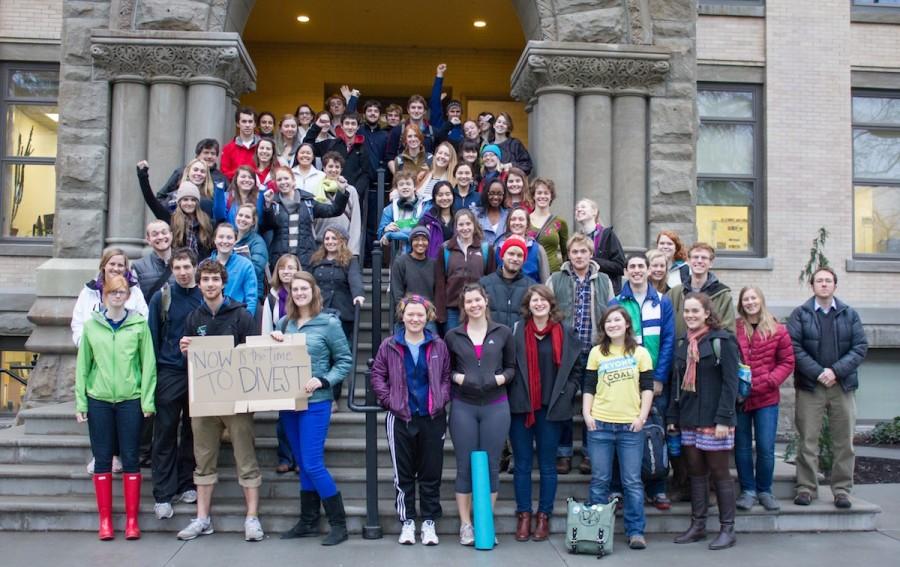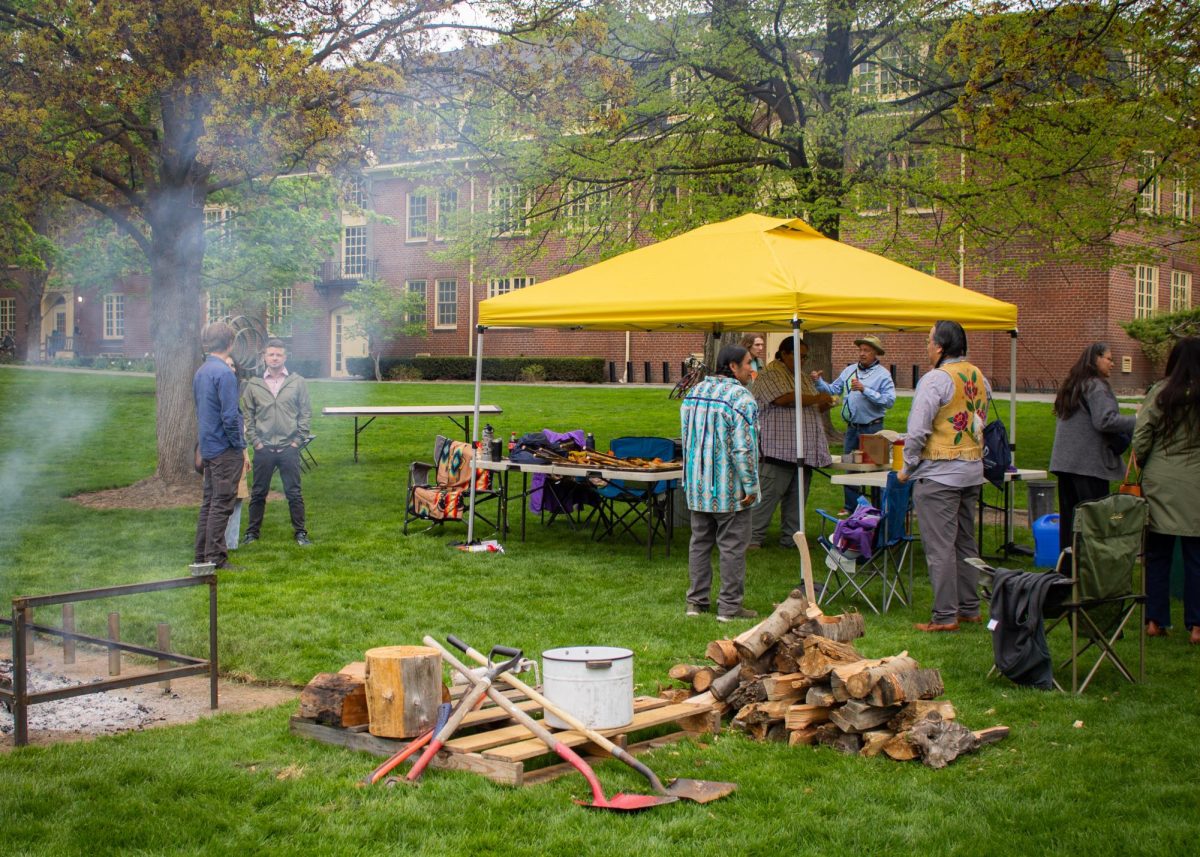Campus Climate Challenge’s (CCC) campaign to encourage Whitman to divest from fossil fuels has gained traction on campus, but has met with new challenges as students and administrators disagree over the best way to use the investment to lower the burning of fossil fuels.
Students and administrators have raised concerns that divestment could lower the return on Whitman’s investment, hurting the college’s finances. Divestment efforts have also come up against advocates of “active shareholding,” a strategy whereby Whitman College would attempt to use its stakes in fossil fuel companies to pressure companies to stop exploring for new deposits of fossil fuels and instead invest in alternative energy.
“It’s pretty difficult to straddle two [positions], but what we’ve discovered is all of us on the campaign still want divestment and that’s still going to be our end goal. But we’re taking being an active shareholder as a step to divestment,” said sophomore Sierra Dickey. “We really need to be very clear to everyone who’s interested and everyone who’s involved about how things have been on the ground on campus and how things have been in [Memorial Hall] with the administrators. I think people are intelligent and can understand that there are big differences between each sector. We’re giving [active shareholding] a go [by] collaborating with administrators. It’ll let us know if that’s what we want to keep doing after this.”
Active shareholding has the support of Whitman Finance Committee Chair David Nierenberg, members of the Whitman Investment Company and Associated Students of Whitman College (ASWC) Finance Committee Chair senior Sam Sadeghi. ASWC itself has yet to take a stance on divestment; before passing any resolutions on the topic, it plans to hold a forum to give speakers in favor of and against divestment a platform to voice their opinions. After the forum, ASWC will consider whether to make a formal move in favor of divestment or active shareholding.
Proponents of active shareholding argue that divestment will not affect fossil fuel companies, as other investors will continue to support corporations which profit from fossil fuels. While some divestment activists agree this is true, they argue divestment will still be effective through influencing public opinion and stimulating media coverage of the issues. Those in favor of active shareholding believe that influencing public opinion is not enough, and fossil fuel companies will react to pressure from shareholders rather than public pressure.
“If you can get 30 of the colleges to combine and use their voice to say, ‘We don’t want you guys to continue exploring; we want you to invest in other forms of fuel,’ [that would make a difference],” said Sadeghi. “Bringing social change [through active shareholding] is more important than education. At some point we need to actually create social change.”
Earlier in the campaign for divestment, critics of the movement focused on how divestment could negatively influence Whitman College’s endowment and, through that, the cost of tuition. However, as active shareholding and divestment both require the college to use its finances to create social change, discourse around the issue has shifted. After meeting with CCC representatives, Nierenberg asked members of the administration to begin gathering data on how the endowment is invested and how much is invested in the companies targeted by divestment This is a distinct break from the college’s history of refusing to consider social investment.
“We came into this meeting under the assumption that we didn’t want Whitman to hurt its financial standing, and if it did, we didn’t want to divest. [Nierenberg] was appreciative of that fact and also seemed to undercut that issue a little bit. It seemed like … [a decrease in finances] wasn’t his biggest concern with the issue of divestment, and that it was more that he wasn’t sure if that was the right tactic to take. Which is interesting, as a lot of the arguments against [divestment] have been that it would financially hurt us,” said first-year Marla Harvey.
The divestment campaign is the largest unified effort by CCC in the organization’s history. In order to deal with the large amount of interest and involvement, the campaign has been broken down into six breakout groups. The strategy breakout group designs the campaign’s overreaching goals and how to achieve them. It is supported by the research group, which looks into the college’s history, as well as the history of speeches given by important figures on campus, in hopes of finding information to help the campaign. The four remaining groups deal with different types of outreach: traditional media, social media, movement building (in charge of tabling, petitions and other events) and design (which makes stickers, posters and art installations).
“Outreach is really important because even if what we’re trying to get done is an actual divestment change that involves the administration and the trustees, the will for that change has to come from the student body. So that’s why the outreach is critical for what we’re doing, to make sure we’re involving people in the process and hearing their ideas,” said junior CCC member Jenni Doering.
Even as the campaign for divestment continues, the CCC plans to hold elections during the week of Feb. 18 to decide new leadership for the campaign. Previously the movement was organized by sustainability interns, but as participation grows the organization has decided that a more democratic approach to leadership is appropriate.
On the weekend of Feb. 23 and 24, the interns who organized the divestment campaign will be traveling to a divestment convergence in Pennsylvania. This conference––the first of its type––has been organized by Bill McKibben’s 350.org campaign in order to create greater solidarity and networking between activists.
Other climate activists who are not attending the conference were given the opportunity to attend a protest in Spokane, Wash. over Presidents’ Day weekend. Although not affiliated with the divestment movement, the protest in Spokane focused on fossil fuels and coincided with a large demonstration in Washington, D.C. which aimed to pressure U.S. President Barack Obama to take action against climate change.
“By getting involved in the larger regional issues, [attending the protest] will allow for organizers on campus to have connections with other schools that are running a campaign or staff members who have greater resources. Also, seeing environmental issues on a more regional scale can help people better contextualize the campaigns that they’re running. Sometimes I think divestment can come off as a little abstract, but when you’re meeting with people who are passionate about the same issues, it can help clarify that,” said junior Claire Meints.





















